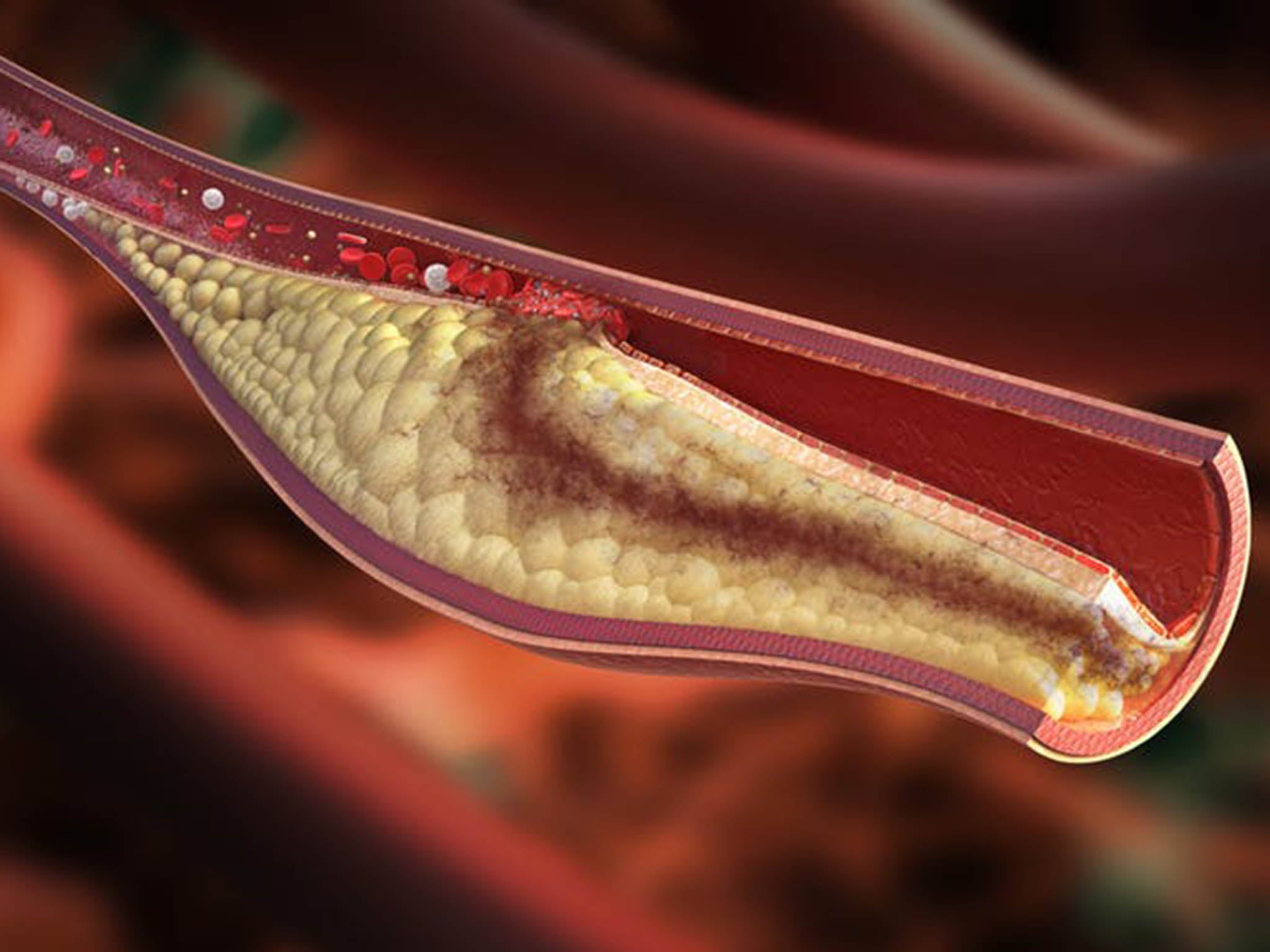Chip: An important risk factor for heart attack you’ve probably never heard of
Mutated bone marrow stem cells could double your risk of having a heart attack

The accumulation of mutated stem cells in bone marrow has been identified as a major new risk factor for heart disease, according to a recent study published in the New England Journal of Medicine. This process, called clonal hematopoiesis of indeterminate potential (Chip) helps to explain why older people are more likely to have heart attacks.
Ageing increases the risk of heart disease partly due to a lifetime’s worth of exposure to risk factors such as high cholesterol, high blood pressure, smoking and obesity. But many people who don’t have these risk factors still suffer heart attacks. When exposure to these factors is accounted for, ageing remains a strong predictor of heart disease.
Chip describes a number of mutations that seem to accumulate in a specific group of genes that are associated with inflammation and cancer. The Chip mutations are somatic – meaning they can’t be inherited – and are picked up randomly over time in hematopoietic stem cells, a type of adult stem cell in the bone marrow that continually produces new blood cells.
Somatic mutations occur naturally, but damaging stimuli, such as fat and cigarette smoke, can cause them to occur more frequently. Most of the time these mutations have no effect.
Sometimes, if a mutation occurs in a specific gene, it can give the mutated cell a competitive advantage. This leads to the expansion of the population of cells carrying the mutation – essentially, natural selection at the cellular level. In Chip this means a small number of founder cells can effectively take over and generate most of the cells in a person’s blood.
Chip is a common age-related process (10 per cent of over-70s have Chip mutations, compared with less than 1 per cent of people under 40) and was initially linked to a tenfold increase in the risk of developing blood cancer and an overall increased risk in dying prematurely.
Double the risk of heart disease
Researchers in the new study sequenced the DNA from blood cells to detect Chip in 4,726 people with heart disease and 3,529 healthy controls. People with Chip mutations were found to have almost double the risk of heart disease, compared with people without the mutation. In younger people with Chip the risk of heart disease was four times higher.
These results show a correlation between Chip mutations and heart disease. To test whether Chip might actually cause disease, the authors went on to investigate possible mechanisms that could explain if Chip might cause heart disease.

Heart attacks are caused by the build-up of atherosclerotic plaques in the arteries of the heart. These atherosclerotic plaques occur because monocytes, a type of white blood cell, move into the blood vessel walls through an inflammatory process. Over time this results in narrowing of the artery and less blood being supplied to the heart. In some cases the atherosclerotic plaque can rupture and cause a complete blockage of the artery, resulting in a heart attack.
Since monocytes are produced from hematopoietic stem cells, the researchers asked if Chip mutations might lead to an increased ability of monocytes to promote atherosclerosis.
The researchers transferred hematopoietic stem cells from the bone marrow of genetically modified mice with a Chip mutation into mice prone to developing atherosclerosis. The mice that received the mutant bone marrow had increased inflammation and more atherosclerosis. This suggests that Chip mutations directly contribute to heart disease via inflammation in arteries.
Like all studies showing an association between a genetic mutation and disease, these findings will need to be validated in larger clinical studies and more experiments performed to confirm potential mechanisms. But the results provide a tantalising glimpse into a possible reason why age is such as strong risk factor for heart disease and could lead to new ways of predicting which people are most likely to get disease and even change the way it is treated.
Tom Webb is a lecturer in cardiovascular eenomics, Alison H Goodall is a professor of thrombosis and haemostasis and Shu Ye is a professor of cardiovascular molecular medicine and genetics at the University of Leicester. This article first appeared on The Conversation (theconversation.com)
Join our commenting forum
Join thought-provoking conversations, follow other Independent readers and see their replies
Comments
Bookmark popover
Removed from bookmarks